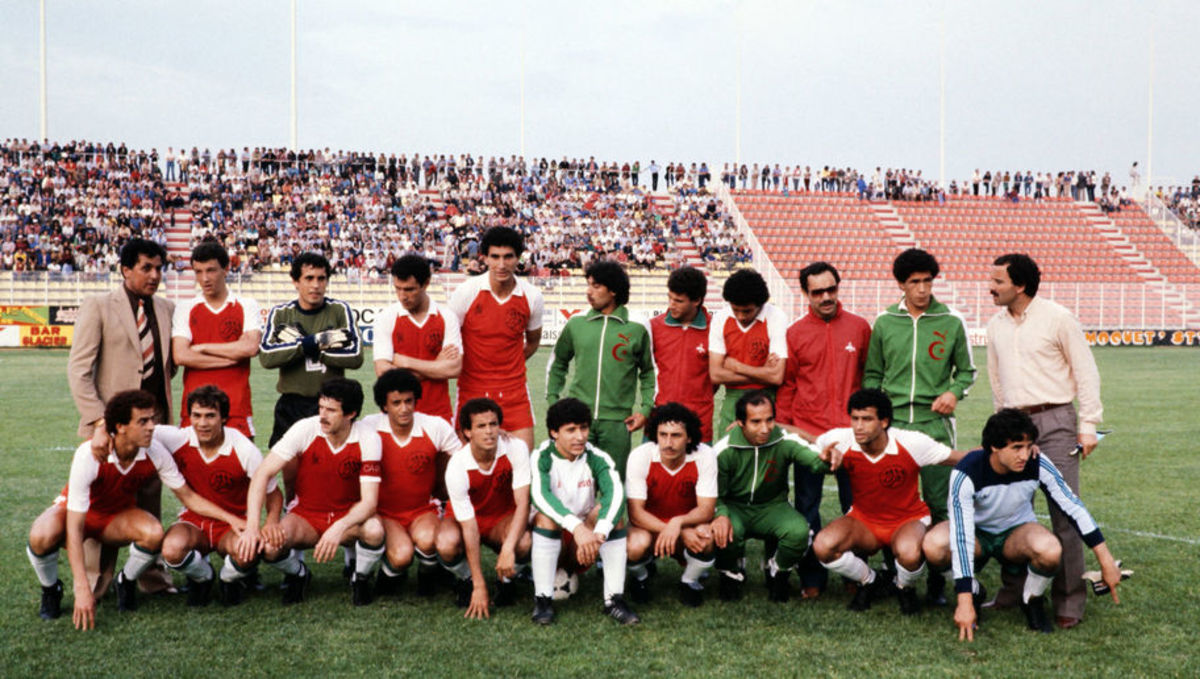World Cup Countdown: 9 Weeks to Go - West Germany, Austria, Algeria & the 'Disgrace of Gijon'

The 1982 World Cup in Spain was the first finals tournament to feature 24 teams, the first expansion since 1934, when it went from 13 competing nations to 16. This was to accommodate the growing markets in the game in Africa and Asia. As a result, and after a previous three attempts to qualify, Algeria managed to make it through to the biggest stage.
They were drawn in Group 2 of the first round set of six groups of teams. They would play the Austria, Chile, and the always heavily fancied West Germans. They were not expected to do well. In fact, it was going to be a straight forward race as to who would finish bottom of the group, them or the Chileans, who despite a third-place finish at their home tournament in 1962 had failed to win a game since in two more finals appearances.
The opening group game saw Algeria square off against then European Champions West Germany in Gijon. After a goalless first half the game was won and lost in a 15 minute period midway through the second half.
The African team took the lead shortly after the break through striker Rabah Madjer, only to see prolific Karl-Heinz Rummenigge a dozen minutes later. With the favourites back in the game they relaxed, and let African Player of the Year Lakhdar Belloumi, move into the six-yard box to knock in a simple winner just a minute later. The next day Austria beat Chile 1-0 in Oviedo, and then the South American team felt the backlash from the Germans as they won convincingly 4-1.
When Austria beat 'The Desert Foxes' 2-0 the group was going to form, with both European teams set to go through. Chile were the whipping boys and Algeria raced into a three-goal lead by half time in the final group game courtesy of a brace from Salah Assad and a third by Tedj Bensaolua. However, they were made to work for their win as Chile scored twice after the break, but they did hold on to become the first African team to win twice at a World Cup finals, and now were in second place with the final game to be played the next day.
The game now known simply as the 'Disgrace of Gijon' was played on 25th June with a late afternoon kick off. Austria topped the group and knew that a draw would eliminate West Germany, whereas the Germans needed to win, and a win by one or two clear goals would see the neighbouring nations qualify for the second round. A win by more would put Austria out. So, what played out was a farcical game of football which changed the format of groups games in major football tournaments.
After a frenetic opening to the game Horst Hrubesch scored for West Germany, as it stood the topped the group with Austria second, and despite being on the same points (four) Algeria would be heading home due to their inferior goal difference. And that’s how it would stay.
80 minutes of virtual no activity. Two sets of players playing simple no risk passes. Now technically this isn’t against the rules but given the circumstances and knowing the exact state of play at the outcome of the game, it was everything that fair play isn’t. With the two teams at stalemate, even if the score wasn’t, the crowd started to turn.
The Spanish in the crowd wanting to see a proper game and the possible knock out of one of the bigger teams were chanting “Argelia, Argelia!” (Algeria, Algeria!”) even the fans of the two competing teams were in shock at what they were witnessing, and whistled, jeered their way through the game. Even the commentators downed tools and fans watching on their television sets were just left with the stadium crowd noise.
When Scottish referee Bob Valentine blew his whistle to end the game there was mild celebrations from the players, but most wanted to get off the field quickly, “Fuera! Fuera!” (“Get out, get out!”) was the call from the fans directed at the players. It was ugly. It was shameful.
“Naturally today’s game was planned tactically” said Hans Tschak, head of the Austrian delegation, “But if 10,000 ‘sons of the desert’ here in the stadium want to trigger a scandal because of this it just goes to show they have too few schools.”
His inflammatory remarks weren’t doing anything to dampen down the fire. “The German team has the right to play slowly and defensively, with security”, was the comment almost immediately after the game from West Germany Football Federation president Hermann Neuberger. This was quite telling as he was also a vice president of FIFA.
With the Algerians raging, during the game their fans inside the stadium were shaking bank notes through the fencing, an official complaint was made to FIFA regarding possible match-fixing. The hearing lasted over three hours and the FIFA committee announced that a result, “could not be altered by any outside body.”
Although deeply upset at the way they went out of the tournament the Algerians went home proud of what they had achieved, “We weren’t angry, we were cool. To see powers debasing themselves to eliminate us was a tribute to Algeria,” said right back Chaabane Merzekane.
“Our performances forced FIFA to make that change [final group games played simultaneously], and that was even better than a victory”, Belloumi said, “It meant that Algeria left an indelible mark on football history.”
Gary Jordan is the author of 'Out of the Shadows: the Story of the 1982 England World Cup Team' published by Pitch Publishing. You can follow him on Twitter at @gazjor1.





